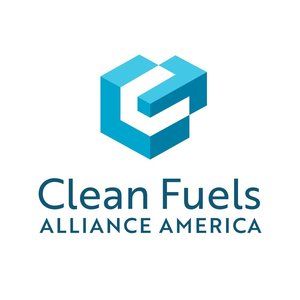Heating oil industry on track to achieve net-zero emissions by 2050

April 30, 2024
BY Clean Fuels Alliance America
The Northeast heating oil industry is on track to achieve the ambitious goals set forth in the Providence Resolution, a landmark commitment made in 2019 to voluntarily reduce greenhouse gas emissions. The resolution, which was unanimously approved by over 300 industry leaders, calls for a 15% reduction in greenhouse gas (GHG) emissions by 2023, a 40% reduction by 2030, and net-zero carbon emissions by 2050.
According to a new analysis by Tom Butcher of the National Oilheat Research Alliance, the industry has surpassed its goal of reducing GHGs 15% by 2023, achieving a nearly 26% reduction in greenhouse gas emissions through a combination of energy efficiency improvements and increased use of renewable fuels such as Bioheat Fuel, a blend of sustainable biodiesel with conventional home heating oil.
“The heating oil industry has made significant strides in reducing its carbon footprint over the past five years,” said Sean Cota, President & CEO of the industry’s Washington-based trade association, the National Energy & Fuels Institute.
Advertisement
Advertisement
“These mostly small, multi-generational family businesses are playing an outsized role in carbon reduction in the Northeast,” Cota added. “They will continue to prove pivotal in the years to come as governments at all levels seek to achieve ambitious greenhouse gas reduction goals in a manner that is equitable and achievable, and that preserves energy security and reliability.”
At its sixth annual industry summit, held in Weehawken, New Jersey this week, the industry celebrated numerous successes and innovations, including:
- UL standards that recognize higher biofuel blends in oil-fired heating equipment
- Manufacturers introducing burners and heating systems to the market that are certified for blends of up to 100% biodiesel (B100)
- New federal tax credits for homeowners who upgrade to more efficient oil-fired furnaces and boilers that are designed for use with higher blends of renewable fuels
- Securing federal grants for downstream biofuel infrastructure investments for heating oil
Working closely with state governments, heating oil state associations advocated for biofuel blending requirements in Connecticut, New York and Rhode Island that will eventually require blends as high as 50%. Additionally, heating oil blended with biofuels are expected to generate credits under emerging “clean heat standards” now being developed in Massachusetts and Vermont, and in the early stages of development in several other Northeast states.
Advertisement
Advertisement
Renewable fuels have proven to be an immediate, cost-effective, and equitable means of reducing emissions in the building sector, particularly for the nearly five million Northeast homes and businesses that rely on heating oil dealers for warmth and comfort each winter.
“There is still work ahead, and we are ready for the challenge,” said NEFI Board Chair Ray Hart, a full-service heating oil dealer based out of Long Island, New York.
“This is an industry of hard-working American men and women that care deeply for their neighbors, their local communities, and the environment,” he said. “Together, we can achieve great heights.”
Related Stories
Global digital shipbuilder Incat Crowther announced on June 11 the company has been commissioned by Los Angeles operator Catalina Express to design a new low-emission, renewable diesel-powered passenger ferry.
ATR and French SAF aggregator ATOBA Energy on June 19 signed a memorandum of understanding (MOU) to explore ways to facilitate and accelerate sustainable aviation fuel (SAF) adoption for ATR operators.
Argent Fuels, a leading provider of carbon-saving fuels in the UK, is accelerating its efforts to support a greener future. The expansion of its High Blend Biodiesel will supply to bus, coach, HGV fleets and rail in the south of the UK.
Sprague Operating Resources LLC on June 24 announced it has been selected by the New York City Department of Citywide Administrative Services to supply renewable diesel for its marine fleet, including the iconic Staten Island Ferry.
On June 17, the NYC Department of Citywide Administrative Services and the Department of Transportation announced the start of the Staten Island Ferry’s transition to renewable diesel, marked by the delivery of the first barge of fuel.
Upcoming Events










